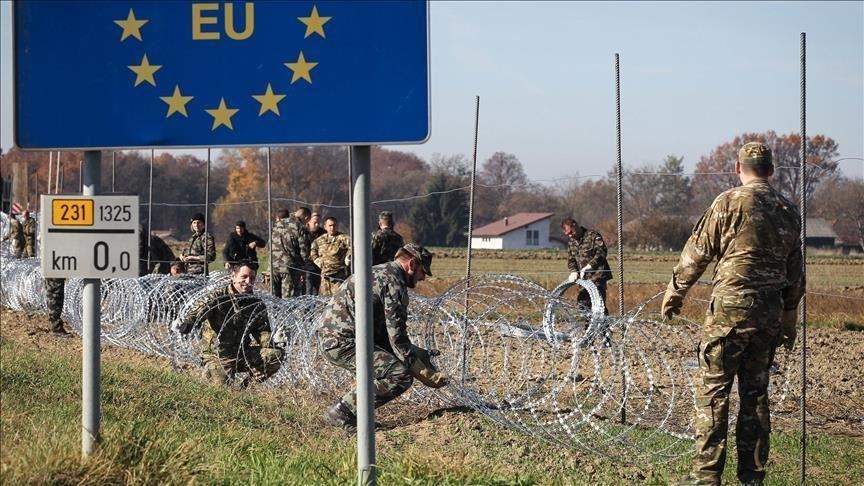
ISTANBUL
Violence against refugees, which is rampant in the Balkans, fails to deter the mass migration toward Europe, an expert told Anadolu on Thursday.
Karolina Augustova, author of the book, Everyday Violence at the European Union's (EU) External Borders: Games and Push-Backs, shared the most striking encounters during her voluntary work on the Balkan borders.
Augustova, who is also an assistant professor at Northumbria University in England, said she directly witnessed violence and torture on migrant children at the borders where she stayed for months.
"I met two seventeen years old boys from Iraq who were burned by electric weapons into their necks by Croatian police before they were pushed back. I also met a three-year-old girl from Iran whose back was fully bruised as the result of pushback," she said.
"Seeing clues of direct violence and torture on children and minors is something incredibly shameful in any place in the world, but mainly, in states that consider themselves as liberal and democratic," she added.
Violence everyday reality
"As I was living in this border area for eight months, I noticed that people did not experience violence only in a moment of police attack. Instead, many people were trying the games and were attacked dozens of times, process that took for months or even, years," she said.
"Imagine you that you live in the camp where you can daily see new injuries, you are surveyed by helicopters and drones, and you constantly must plan strategies how to avoid police violence during your next game attempt. In this way, violence is an everyday and longitudinal process in which people live until they manage to cross the border or die," Augustova added.
Stating that the majority of those staying in the refugee camps are men because the Balkan route is so dangerous, Augustova said that she called the attempt by irregular migrants to cross the border "a game."
They are constantly developing strategies on how to escape police violence and hoping to legally reunite with their families after crossing the border, she said.
Stating that she also addresses the issue of structural violence in her book, Augustova continued: "What I mean by this is that states actively deny aid to people stranded in makeshift refugee camps, from basic things, such as shelter, food, hygiene and medical care. So, imagine that you come exhausted and injured from the border, and you end up sleeping in a squat, and often, you must try to heal your injuries by using random tablets or old bandages. Denying people basic needs is an indirect way how to harm them."
Hope for better life
Despite the introduction of a "volunteer visa" for those who want to help irregular migrants at the borders in Europe, she said almost no one is granted this visa.
There are cases of police harassment against volunteers and that Croatian state officials openly call them "criminals or smugglers," she said.
Noting that the European Commission and member states spend a lot of money to stop immigration, Augustova shared the view that the money spent on surveillance technologies, border security training, "voluntary" repatriation of irregular migrants and other means aims to close the EU territory to the outside.
She said the funding allocated to prevent irregular migration does not aim to eliminate the causes of migration.
Augustova said that the investments made to prevent border crossings encourage unofficial and illegal pushback practices of border police.
“People have incredible resistance and have no other choice than keep attempting games and navigating violence until they succeed. Hope for better life, friendship, and safety are much stronger pull forwards than pushbacks. Most people who I met in refugee camps are now safe in Europe," the academic added.
"To stop violence and deaths in borders, governments should stop spending billions of euros for border militarisation and training of border guards that rely on violence. These are short-sighted policies that criminalise migration and hope for deterrence through fear. But from long-term perspective, these do not stop migration. Welcome of Ukrainian refugees since 2022 showed that other policy ways are possible," she concluded.




